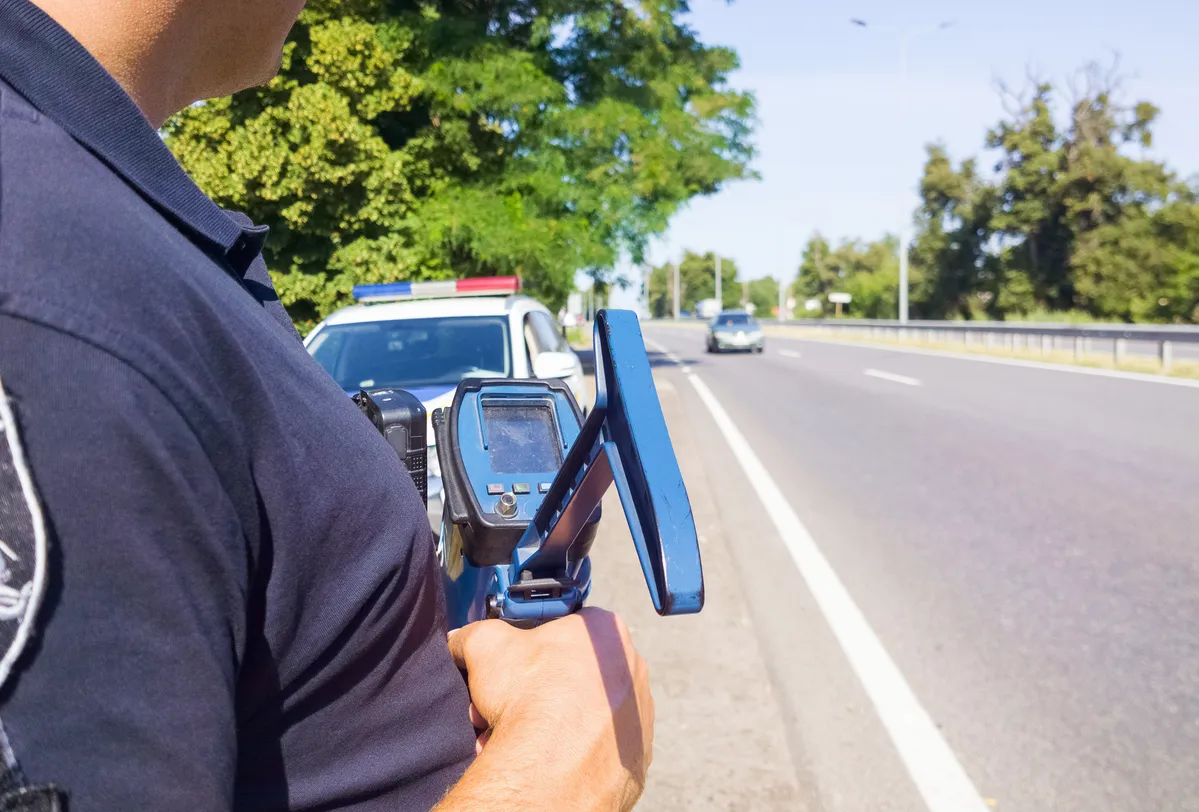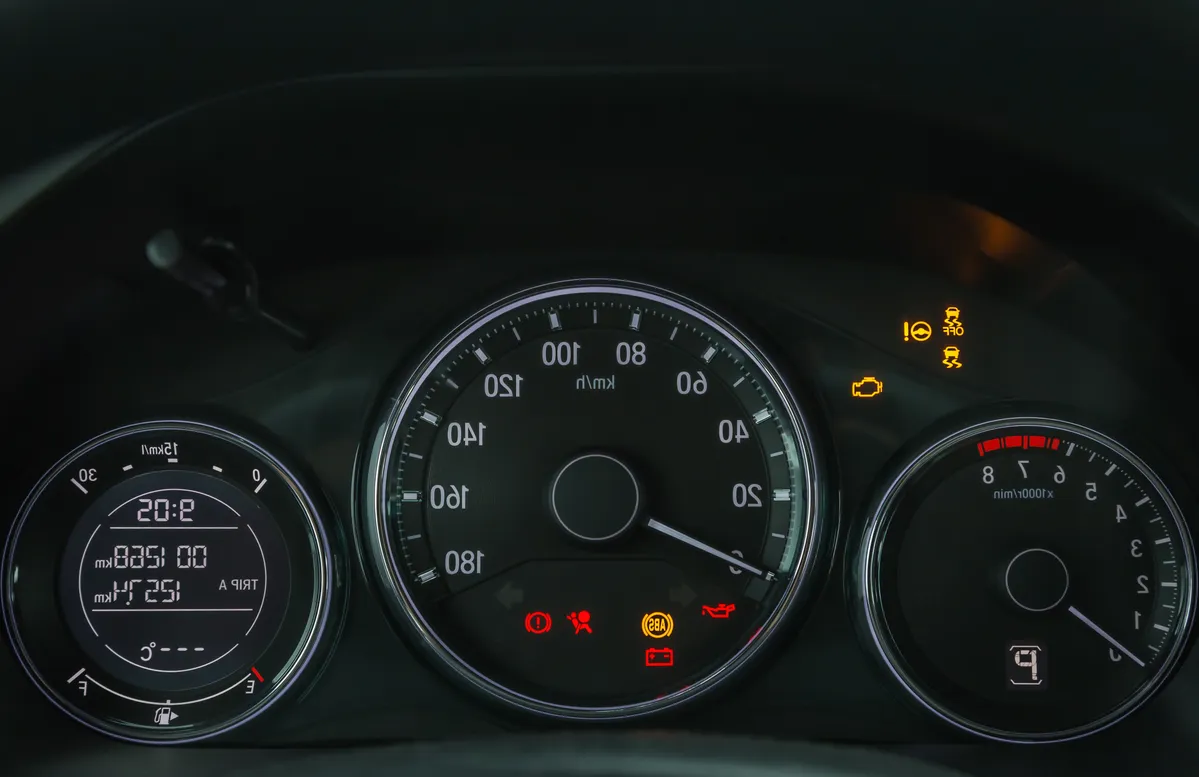5 min read time
Table of Contents

Nevada Speeding Law NRS 484B.600 Explained
Nevada's basic speeding law outlined in NRS 484B.600 states the speeding laws and penalties for moving violations.
Under NRS 484B.600, Nevada drivers must drive at a "reasonable and proper" speed that takes into account of traffic flow, weather, and road conditions.
Under the reasonable and proper rule, a driver can be charged with a moving violation (speeding) even if they were driving under the posted speed limit, but the road conditions make their speed unsafe.
What Are the Penalties for Speeding in Nevada
The penalties for speeding in Nevada can range from a traffic offense to a criminal offense depending on the speed the driver was going at and other conditions, such as if they caused a car accident or if the incident endangered foot traffic.
Typical penalties for speeding in Nevada include:
- Fines: A Traffic offense such as speeding often results in fines that increase depending on how much a driver exceeded the speed limit and the location where the incident occurred.
- Demerit Points: Moving traffic violations typically add 1 to 5 demerit points to your driving record, and accumulating 12 points within a 12-month period could result in a license suspension.
- Reckless Driving Charges: Speeding violations may exceed a civil infraction and become a serious charge such as a felony or misdemeanor offense if a driver was going 30 mph over the speed limit.
Las Vegas Street Speed Limits by Zone
If you are a Nevada driver, you must understand the various speed limits in Las Vegas, NV.
- Residential Area: 25 to 35 mph
- School Zone: 15 to 25 mph (Only enforced during school hours or when children are present)
- Urban Street: 35 to 45 mph
- Highway: 55 to 65 mph
- Interstate Highway: 70 to 80 mph
- Construction Zone: Based on the temporary traffic control sign but typically between 25 to 45 mph
How Much Is the Average Speeding Ticket in Las Vegas
Nevada speeding ticket costs typically depend on how much you were over the posted speed limit.
The typical civil penalty for speeding tickets are:
- 1 to 10 Mph over: $150 to $200
- 11 to 20 Mph over: $200 to $300
- 21 to 30 Mph over: $300 to $400
- 31 Mph over: $500 and the possibility of a misdemeanor charge.
In addition, you should understand that any speeding tickets you received in the last 12 months or if you were speeding in a school or work zone may increase the cost of your next speeding ticket.
How Many Miles per Hour over the Speed Limit Can You Go in Nevada?
Nevada law outlines that any speed greater than the posted speed limit, even by 1 mph, can result in a speeding ticket.
However, just because that is the case doesn't mean law enforcement will cite people with traffic violations for going a couple of mph over the limit.
In most cases, you can expect to receive a speeding citation if you are 10 to 20 mph over the speed limit or not traveling at a safe speed for the current situation.
What Is Felony Speeding in Nevada?

A felony speeding charge is outlined in NRS 484B.653 and is typically the result of a driver going 30 mph over the posted limit, a car accident resulting in injury or death caused by speeding, or street racing.
Penalties for Felony Speeding in Nevada
Penalties for felony speeding exceed the typical punishments civil infractions, like the vast majority of basic traffic offenses, may result in.
Penalties for felony speeding in Nevada are:
- Imprisonment: A felony reckless driving charge can result in jail time ranging from 1 to 6 years.
- Fines: Fines ranging from $2,000 to $5,000 may be enforced.
- License Suspension: If you're charged with a felony speeding offense, you'll have your driver's license suspended.
Additional penalties may apply depending on the specific circumstances, which is why you should speak with a Las Vegas criminal defense attorney immediately if you were charged with a felony speeding violation.
How Can You Fight a Speeding Ticket in Nevada?
If you're seeking to have a traffic violation ticket dismissed, you must understand how to fight a speeding violation properly.
Enter a 'Not Guilty' Plea
The moment you receive a speeding ticket, plead 'not guilty.' You can typically plead not guilty via mail, online, or in person; however, you must send your plead before your court appearance date.
Hire a Traffic Attorney
While a traffic ticket can usually be handled alone, some situations may require legal assistance from a traffic lawyer, as their legal insights and negotiation skills could help your chances of winning your moving violation case.
Make a Case
You'll need to form a case against the traffic violation you were charged with, which can be done by:
- Gathering Evidence: Collect relevant information such as witness statements, photographs, or video footage.
- Reviewing the Moving Violation: Analzye the traffic ticket, you were cited for any errors or inaccuracies that could be used to fight it.
- Understanding the Law: Learn the law related to speeding offenses and identify potential defenses that may appeal to Nevada traffic judges.
Present Your Case in Court
Once your case against the traffic violation is completed and your court date arrives, you may present your case in court, which typically proceeds with:
- Opening Statements: State your position on why you believe the ticket was unjustified.
- Present Evidence: Use evidence and witness states to support your statement.
- Cross-examine the Officer: The citing officer will be present at your trial and, if applicable, question the officer on their account and equipment.
- Closing Arguments: Summarize your case and emphasize key points.
After presenting your case in court, you'll need to await the judge's decision.
How Long Does a Speeding Ticket Stay on Your Record in Nevada?
A speeding ticket will usually remain on your record for up to 12 months.
Also, a speeding ticket may result in increased insurance premiums, which could last for three to five years, depending on how high-risk the insurance company considers you to be.
What’s the Fastest Speed Limit in Nevada?
The fastest speed limit in Nevada is 80 mph and is usually posted alongside roadways in rural sections of interstate highways.
Interstate highways such as Interstate 15 and Interstate 80 have limits of 80 mph because they are long stretches of straight roads with little traffic, urban development, and lack of a pedestrian safety zone.
Obtain the Compensation You're Entitled To
Contact Us Today
Rodney Okano Car Accident Lawyer is a Las Vegas personal injury law firm with over 20 years of experience helping clients obtain maximum compensation following injuries from accidents such as car crashes, worksite injuries, and slips and falls. Over those years, The Rodney Okano Car Accident Lawyer Law Firm has become an experienced law firm that can ensure exceptional results for any of its clients.






